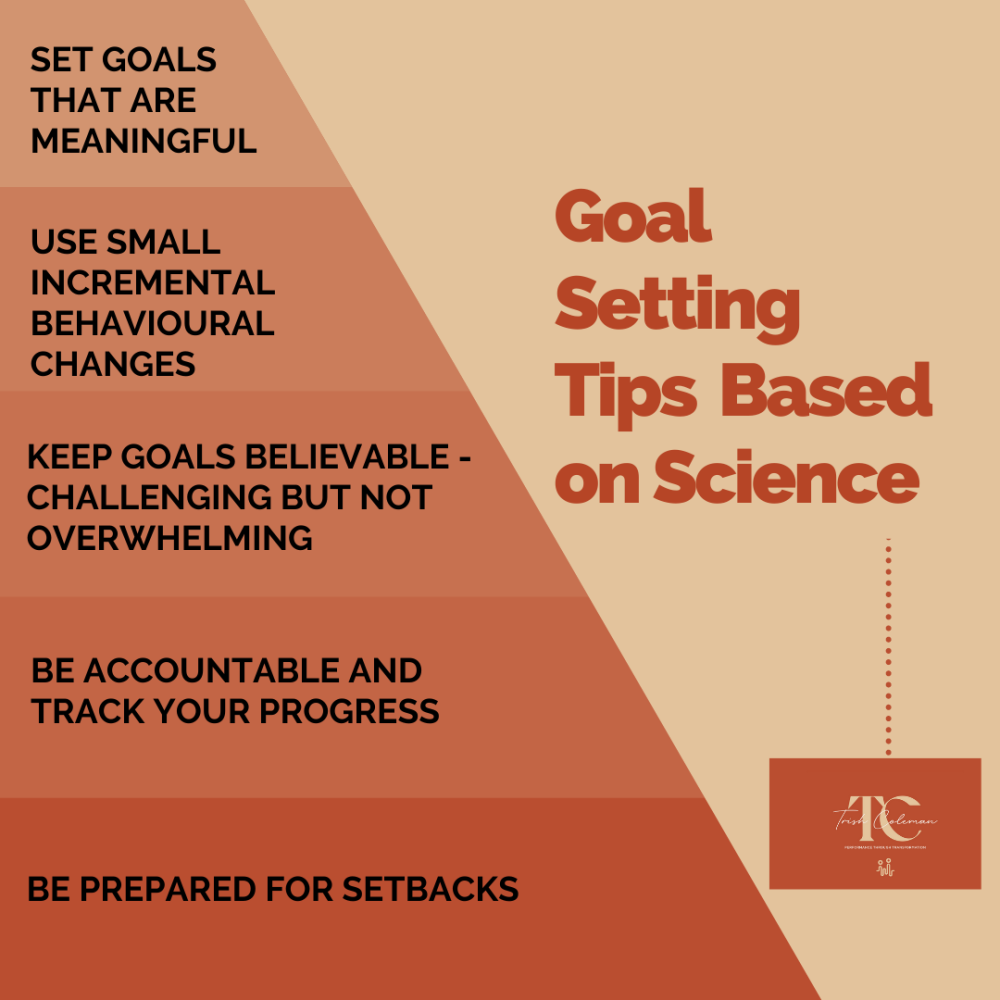Goal setting seems simple on the surface.
You define what you’d like to accomplish and take the necessary steps to make those accomplishments a reality.
However, setting and achieving a goal is more than simply deciding and wishing. Each year, millions of people set New Year’s resolutions. Few of those people are still on track after just 10 days.
Research by leaders in goal-setting theory, Edward Locke, and Gary Latham (2002) suggests that goals not only affect behaviour and job performance, but they also help energise us, which leads to a higher effort overall, increasing the odds of success. Goals help motivate us to develop strategies that will enable us to perform and achieve.
You can be one of the few people you know to master setting and achieving goals and through success boost the joy you achieve in life. Below I have outlined some tips.
Set goals and achieve them more reliably:
1. Set 3 to 4 goals that are meaningful and align to your why/purpose: many people waste their time with goals that don’t mean very much to them. Life is short, so create goals that fill you with excitement when you think about achieving them. Reaching any goal requires change, and humans are innately resistant to change. Big changes require a lot of motivation. Set goals that mean a lot to you. Set goals that are aligned to your purpose and values and state goals as declarations of intention (“I will”… rather than “I want”), not items on a wish list. And ensure they are clear and succinct.
Example goal statements:
· I will achieve a promotion to [role] by May 2022
· I will develop my confidence and personal presence to present a paper on ABC at the XYZ conference in December 2022
2. Use small incremental behavioural changes: change can be achieved easier if the changes are not too big and overwhelming.
Imagine someone attempting to make an overnight change from a diet of fast food, soda, potato chips, and ice cream to one of vegetables, fruit, and fresh meat. Their mind and body would likely revolt. It would be easier to make small changes each week until the transformation is complete.
3. Commitment: check in re the commitment to goals – moving from pre-contemplation into action. On a scale of 1 to 10 with ten being highly committed “how committed are you to achieving this goal”?
4. Keep goals believable: is it possible to increase your earnings from $50k this year to $1 million? It’s possible, but it’s not likely. And if you believe it’s unlikely, you are unlikely to even try. The perfect goal is challenging, but not so challenging that you feel overwhelmed.
Have an action plan with micro steps or specific actions for each goal and take daily notes re actions taken to achieve goals on that day.
5. Track your progress: measuring your progress is extremely important. It provides information on how well you are doing. You cannot know if you are making progress towards your goal if you do not measure it. You can shift your strategy if you realize that you are not progressing well.
Monitoring progress re goals is crucial and positive reinforcement comes from attaining small sub goals/small wins, which helps build confidence, motivation, and inspiration to stretch yourself more (Grant, 2012).
Keep a list of what you have achieved, this can keep you motivated and increase your confidence. Often, we forget how much we have done so a ‘to done’ list is a perfect reminder to have easily to hand. It can also provide a boost of enthusiasm and positivity. When you’re making progress, you feel excited.
6. Be prepared for setbacks: achieving any goal is rarely a smooth process. There will be bad days with poor results. Rather than reject your goal when the going gets tough, be prepared for setbacks.
Have a plan in place to deal with setbacks and frustration, you might call a friend or remind yourself of the purpose of achieving the goal. Reviewing your success so far can also help with motivation and confidence.
It also pays to take preventative action, for example, to remove the temptation to cheat on your diet ensure you have healthy snacks available (that you enjoy) or head to bed early to avoid visiting the pantry.
Add alt text
Research shows that having a buddy or a coach to keep you focused, motivated and on track increases your goal achievement substantially. This support can be weekly/monthly/annually and or via an accountability group.
Other things you could do:
· Letter from the future.
· Reframing your mind through use of meditation, music, podcasts, Ted Talks, positive verbal language and body language.
Goals are necessary if you want to consciously change your life, everything else is a matter of luck and circumstance. Most people struggle to set and achieve goals. Set and pursue goals intelligently and you may be pleasantly surprised by the results.
“People who set goals are more likely to succeed than people who do not.” (Tal Ben Shahar, Harvard University).
#career #goals #coaching #performance #development
References
Grant, A. M. (2012). An integrated model of goal-focused coaching: An Evidence-Based Framework for Teaching and Practice. International Coaching Psychology Review, 7(2), 147-165.
Locke, E., & Latham, G. (2002). Building a practically useful theory of goal setting and task motivation. American Psychologist.






